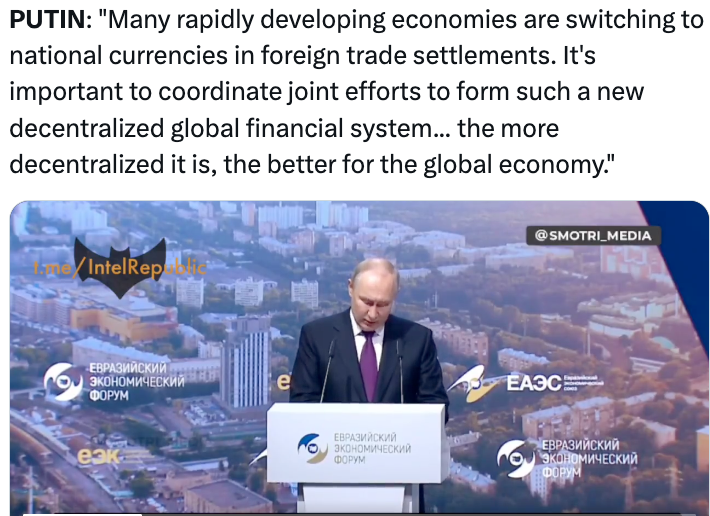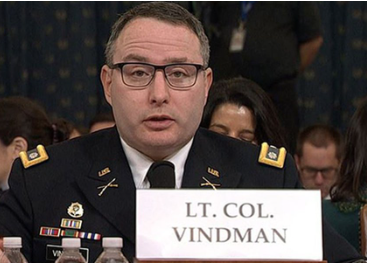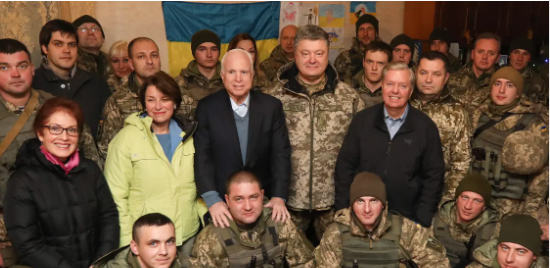It looks like you're using an Ad Blocker.
Please white-list or disable AboveTopSecret.com in your ad-blocking tool.
Thank you.
Some features of ATS will be disabled while you continue to use an ad-blocker.
share:
Muchos gracias Dashen.
Back to the pharma wars.
How much more can I write about Pfizer?
Surprise...Paxlovid has just received FDA approval.
Bourla Tweet
Of course Burla is thrilled but seriously how can he possibly say that the review was thorough?
Time to Fact check the FDA.
FDA Q & A
Well this looks pretty horrifying.
"The FDA identified more that 250 cases of serious adverse events assessed as possibly or probably related to Paxlovid drug-drug interaction."
This is weird "patient outcomes don't need to be reported under the EUA"??? How do we know what the true # of adverse events there are, or maybe that is the point.
Concerning the target population -The FDA admits here that 50% of Paxlovid- eligible Medicare and VA patients take medications that would have serious drug related issues if taken with Paxlovid. So why is the FDA approving this drug again?
Then there is the pharmacist problem. How can they get access to patients medical records? Like I said before those people in the pop up trailers do not know enough about the dangers of this drug.
The FDA can just magically extend the expiration of different lots and they don't seem to be too concerned about the Covid tests.
FDA Approves Paxlovid
Seriously? "The approval shows that Paxlovid has met the rigorous standards for safety and effectiveness."
Back to the pharma wars.
How much more can I write about Pfizer?
Surprise...Paxlovid has just received FDA approval.
Bourla Tweet
Of course Burla is thrilled but seriously how can he possibly say that the review was thorough?
Time to Fact check the FDA.
FDA Q & A
Well this looks pretty horrifying.
"The FDA identified more that 250 cases of serious adverse events assessed as possibly or probably related to Paxlovid drug-drug interaction."
This is weird "patient outcomes don't need to be reported under the EUA"??? How do we know what the true # of adverse events there are, or maybe that is the point.
Concerning the target population -The FDA admits here that 50% of Paxlovid- eligible Medicare and VA patients take medications that would have serious drug related issues if taken with Paxlovid. So why is the FDA approving this drug again?
Then there is the pharmacist problem. How can they get access to patients medical records? Like I said before those people in the pop up trailers do not know enough about the dangers of this drug.
The FDA can just magically extend the expiration of different lots and they don't seem to be too concerned about the Covid tests.
FDA Approves Paxlovid
Seriously? "The approval shows that Paxlovid has met the rigorous standards for safety and effectiveness."
a reply to: DontTreadOnMe
Well done and huge thanks Dashen n all.
Gonna bee huge fun, takes seat.
Clif latest data share gives comprehension regards past 20 years language changes
clifhigh.substack.com... ail#details
Well done and huge thanks Dashen n all.
Gonna bee huge fun, takes seat.
Clif latest data share gives comprehension regards past 20 years language changes
clifhigh.substack.com... ail#details
edit on 25-5-2023 by 13Kiwi20qYes because: Remembering the mirror in 34. O
Why am I not surprised?
The FDA has set up a "Rumor Control" website. This is getting good.
Now we can read their version of the facts. Just wondering how they will respond to their own Fact sheet about Paxlovid.
FDA Rumor and Control
They should have thought twice about raising the issue - Why does the FDA exist?
Scrolling to the bottom we have just sooo many options to report on each other. Probably a fluke but this was updated 05/23/2023 which means 17.
The FDA has set up a "Rumor Control" website. This is getting good.
Now we can read their version of the facts. Just wondering how they will respond to their own Fact sheet about Paxlovid.
FDA Rumor and Control
They should have thought twice about raising the issue - Why does the FDA exist?
Scrolling to the bottom we have just sooo many options to report on each other. Probably a fluke but this was updated 05/23/2023 which means 17.
Thanks Dashen,
Who’d of thunk it...
This is/was YESTODAYTOMORROW...
Lurker in chief, lost my handle log in.
So had to start again.
I’m far south UK....
I think we are close to avalaunch,
L8R
Who’d of thunk it...
This is/was YESTODAYTOMORROW...
Lurker in chief, lost my handle log in.
So had to start again.
I’m far south UK....
I think we are close to avalaunch,
L8R
Billy the 'Farmer' Gates has been a bit quiet lately on this front.
But wait what's this?
Eva Vlaardingerbroek tweet
If Gates is around this something must be up.
Bill Gates Backs New Start-up
Is this red seaweed safe???
Carrageenan Controversy
Watch the water-"Red Seaweed- carrageenan-called poligenan [or degraded carrageenan] that has broken down into smaller fragments. In science it is used for inflammation in animal experiments" and then we have the cancer link.
"It is clear that the FDA has no interest in all the newer research that suggests carrageena is seriously problematic."
I've heard in the cattle community "Do Not Comply" is trending.
But wait what's this?
Eva Vlaardingerbroek tweet
If Gates is around this something must be up.
Bill Gates Backs New Start-up
Is this red seaweed safe???
Carrageenan Controversy
Watch the water-"Red Seaweed- carrageenan-called poligenan [or degraded carrageenan] that has broken down into smaller fragments. In science it is used for inflammation in animal experiments" and then we have the cancer link.
"It is clear that the FDA has no interest in all the newer research that suggests carrageena is seriously problematic."
I've heard in the cattle community "Do Not Comply" is trending.
Appears to be a refreshed version of Vlad.

CLIP imagine thinking this is a terrible idea, the ignorance on this planet is astounding.
Pic of Team Joe's Economic Team right now, fending off this evil multi-polar, decentralized, level playing field world.

Quite a depiction of Humans As Currency ^^^
Ukraine is a rudderless ship, overheard today at the Team Joe Meeting on the Military Action: "Can't they just shoot the tires out?"
I ask again for the thousandth time: Why hasn't this guy stepped in already?????

Where are the Chulupa Girls? Why hasn't Team Ukraine: Lady Lindsey, Klobufork, Dead McStain and even honorary Ukraine VP Joe put the boots on and headed to Ukraine?

The ignorance on this planet is astounding.

On a side note. I do hope at least the people in this thread have notice something so in their face that it cannot be denied. Booze, Retail, Sports,,,,,,, ALL, revealed this past week they are all in for the NWO/Mao/Stalin/Trans/Meta world, all.
So in one week a beloved "brand" + our favorite "retail" + the "national pastime" just revealed themselves as committed to financial suicide in order to serve the higher order. No single institution is without the foundation of this as their ultimate goal. None.
In the same week the FBI, eneMedia, DA prosecutors, and too much more frankly, all revealed their commitment to the now failed Agenda 2026. This devotion to a monument of goodness like Baseball is revealing the truth, this was always mind control. I friend of mine said it best actually when joking about rigged games years ago "it was always BS, it was just better BS before." Baseball How many famous, important, Basketball Players had the numbers: 23, 32 or 33 as their jersey number?
Nothing will be linear now, nothing, do not expect a 1,2,3 process with a nice Narrative Wrap Up to share with friends. Think I am wrong?
Watch the Vlad clip again, consider he is not only committed to it, went to war over it, took in the Roths Old Guard and has managed to convince Iran, Saudi Arabia and some 30+ other countries to get on board, and their GDP is more than the Old Guard. He won by just getting this far already = there is no going back.
All will be nuked, not just a few of our institutions, all. What folks make of it will be their own, the choices were made 3 years ago, fruition is here. It will get emotionally ugly for many shortly, but forge ahead, others are.
We have reached the point where matching POV's will be all but impossible from here on out, it creates frustration to be sure. One should not fight with another over accepting a POV as THE only POV, to do is to one's detriment and is soul destroying = you are quite literally destroying your own SOUL by arguing with another, especially some nameless on the Net or some street corner demon.
Fighting over POV shows insecurity, fear, anger etc. it does not show confidence - EVER!!!
Gematria: Twenty Twenty Three 32+88

Tally Ho.

CLIP imagine thinking this is a terrible idea, the ignorance on this planet is astounding.
Pic of Team Joe's Economic Team right now, fending off this evil multi-polar, decentralized, level playing field world.

Quite a depiction of Humans As Currency ^^^
Ukraine is a rudderless ship, overheard today at the Team Joe Meeting on the Military Action: "Can't they just shoot the tires out?"
I ask again for the thousandth time: Why hasn't this guy stepped in already?????

Where are the Chulupa Girls? Why hasn't Team Ukraine: Lady Lindsey, Klobufork, Dead McStain and even honorary Ukraine VP Joe put the boots on and headed to Ukraine?

The ignorance on this planet is astounding.

On a side note. I do hope at least the people in this thread have notice something so in their face that it cannot be denied. Booze, Retail, Sports,,,,,,, ALL, revealed this past week they are all in for the NWO/Mao/Stalin/Trans/Meta world, all.
So in one week a beloved "brand" + our favorite "retail" + the "national pastime" just revealed themselves as committed to financial suicide in order to serve the higher order. No single institution is without the foundation of this as their ultimate goal. None.
In the same week the FBI, eneMedia, DA prosecutors, and too much more frankly, all revealed their commitment to the now failed Agenda 2026. This devotion to a monument of goodness like Baseball is revealing the truth, this was always mind control. I friend of mine said it best actually when joking about rigged games years ago "it was always BS, it was just better BS before." Baseball How many famous, important, Basketball Players had the numbers: 23, 32 or 33 as their jersey number?
Nothing will be linear now, nothing, do not expect a 1,2,3 process with a nice Narrative Wrap Up to share with friends. Think I am wrong?
Watch the Vlad clip again, consider he is not only committed to it, went to war over it, took in the Roths Old Guard and has managed to convince Iran, Saudi Arabia and some 30+ other countries to get on board, and their GDP is more than the Old Guard. He won by just getting this far already = there is no going back.
All will be nuked, not just a few of our institutions, all. What folks make of it will be their own, the choices were made 3 years ago, fruition is here. It will get emotionally ugly for many shortly, but forge ahead, others are.
We have reached the point where matching POV's will be all but impossible from here on out, it creates frustration to be sure. One should not fight with another over accepting a POV as THE only POV, to do is to one's detriment and is soul destroying = you are quite literally destroying your own SOUL by arguing with another, especially some nameless on the Net or some street corner demon.
Fighting over POV shows insecurity, fear, anger etc. it does not show confidence - EVER!!!
Gematria: Twenty Twenty Three 32+88

Tally Ho.
Circling back to Albert Bourla and [surprise] Pfizer.
I have been wondering about this.
Albert Bourla and the Gold Ring
"On his left hand he wears a gold signet ring with an ancient Greek helmet carved into the black stone." Apparently it was his fathers but why isn't he wearing a wedding ring? His wife seems to be MIA and she didn't even attend their son's university graduation. Very handy the Covid excuse.
The black stone could be symbolic for Blackrock.
The Spiral NYC Wiki
Well what do we have here? "Blackstone gave Pfizer a $1.8 billion construction loan, one of the largest loans in NY history."
Probably just a coincidence that the lease was signed preplandemic April 2018. What a strange coincidence the building has 66 floors and Pfizer=6. Pfizer executives must have felt very confident of incoming profits.
Blackrock Troubles
Lets see office vaccancies are in the rise in San Fran, Chicago and New York and all three are situated near water.
Could the helmet possibly mean breaking Blackrock? File under weird.
Very Rare Ancient Greek Helmet Found in Burial Chamber
I have been wondering about this.
Albert Bourla and the Gold Ring
"On his left hand he wears a gold signet ring with an ancient Greek helmet carved into the black stone." Apparently it was his fathers but why isn't he wearing a wedding ring? His wife seems to be MIA and she didn't even attend their son's university graduation. Very handy the Covid excuse.
The black stone could be symbolic for Blackrock.
The Spiral NYC Wiki
Well what do we have here? "Blackstone gave Pfizer a $1.8 billion construction loan, one of the largest loans in NY history."
Probably just a coincidence that the lease was signed preplandemic April 2018. What a strange coincidence the building has 66 floors and Pfizer=6. Pfizer executives must have felt very confident of incoming profits.
Blackrock Troubles
Lets see office vaccancies are in the rise in San Fran, Chicago and New York and all three are situated near water.
Could the helmet possibly mean breaking Blackrock? File under weird.
Very Rare Ancient Greek Helmet Found in Burial Chamber
JPMorgan's Jamie Dimon and Goldman Sachs' David Solomon just warned of serious headwinds for the US economy
www.businessinsider.com...
The S&P 500 is already flashing signs of a recession as key stocks have plunged, economist David Rosenberg says
markets.businessinsider.com...
Nearly 20 million households are behind on their utility bills
amp.cnn.com...
CEO of Goldman Sachs, David Solomon just issued a warning that inflation's not going down anytime soon, and it's going to stay around longer than Americans — and the Fed — want.
Jamie Dimon of JPMorgan, who's no stranger to credit crunches and bank rescues, said that any further constricting in lending conditions will likely come down hard on real estate.
Stress in the commercial real estate sector has already been mounting for months thanks to higher rates as well as work-from-home trends that have crushed demand for office buildings.
"I think everyone should be prepared for rates going higher from here," Dimon said on Monday.
www.businessinsider.com...
The S&P 500 is already flashing signs of a recession as key stocks have plunged, economist David Rosenberg says
The question always comes – why isn't the S&P 500 signalling a recession? Answer: it is," the Rosenberg Research chief said in a tweet on Thursday.
Markets guru Larry McDonald also warned of an oncoming recession in a recent Insider interview, saying the S&P 500 could crash nearly 30% by December as dwindling corporate profits, less government spending and banking stress weigh on stocks.
"The most economic sensitive areas are down -33%: transports, consumer discretionary and banks. Behaving as they did heading into the 1990-91, 2001 and 2007-09 downturns," he added.
markets.businessinsider.com...
Nearly 20 million households are behind on their utility bills
The high prices of essential goods, particularly food and housing, has made it tough for many folks to afford the soaring cost of their energy bills.
That has helped drive up the number of households behind on their utility payments to nearly 20 million as of March, up from 17.6 million a year earlier, according to the National Energy Assistance Directors Association. The households owe a total of $19.5 billion, up from $15.7 billion in March 2022.
amp.cnn.com...
Fitch puts United States’ AAA rating on negative watch, citing debt ceiling fight
www.cnbc.com...
Inside Wall Street’s Playbook to Prevent Debt-Ceiling Chaos
www.wsj.com...
Social Security payments could be delayed due to debt ceiling impasse
amp.cnn.com...
Fitch put the United States' AAA long-term foreign-currency issuer default rating on negative watch Wednesday evening, pointing to brinksmanship over the debt ceiling.
"The Rating Watch Negative reflects increased political partisanship that is hindering reaching a solution to raise or suspend the debt limit despite the fast-approaching x-date," the rating agency said.
www.cnbc.com...
Inside Wall Street’s Playbook to Prevent Debt-Ceiling Chaos
Wall Street is breaking out its Doomsday Playbook for how to survive a U.S. default.
www.wsj.com...
Social Security payments could be delayed due to debt ceiling impasse
If the US is not able to pay all its bills for the first time ever, senior citizens could quickly feel the pain.
Unless President Joe Biden and House Republicans hammer out a deal to address the debt ceiling soon, the Treasury Department may not have enough funds to fully satisfy all of the nation’s obligations as soon as June 1.
amp.cnn.com...
9 Asian Countries Discuss De-Dollarization Measures in Meeting Hosted by Iran
news.bitcoin.com...
BRICS Nations Working on Creating New Currency to Be Discussed at Next Leaders Summit:
news.bitcoin.com...
The two-day 51st annual Asian Clearing Union (ACU) meeting began on Tuesday in Tehran, with participation from officials representing members of the Asian Clearing Union (ACU) as well as several others. The meeting was hosted by the central bank of Iran and de-dollarization was a key topic discussed at the event, Tasnim news service reported.
Commenting on the role of the U.S. dollar in the world economy and a growing number of countries shifting away from using the USD in trade settlement, Iran’s First Vice President Mohammad Mokhber said at the meeting:
De-dollarization is not a voluntary choice by countries anymore, it is the countries’ inevitable response to the ‘weaponization project of the dollar.’
The BRICS countries (Brazil, Russia, India, China, and South Africa) have also pushed to reduce their reliance on the U.S. dollar. The economic group is discussing creating a common currency that is set to be discussed at its upcoming leaders’ summit. Ten Southeast Asian countries, members of the Association of Southeast Asian Nations (ASEAN), also recently agreed to encourage the use of national currencies instead of the U.S. dollar.
news.bitcoin.com...
BRICS Nations Working on Creating New Currency to Be Discussed at Next Leaders Summit:
The BRICS nations are reportedly working on developing a new form of currency, which is expected to be discussed at the next BRICS leaders’ summit, according to a top Russian official. “The transition to settlements in national currencies is the first step. The next one is to provide the circulation of digital or any other form of a fundamentally new currency in the nearest future,” the deputy chairman of the Russian State Duma was quoted as saying.
Babakov left open the possibility of a unified currency arising within BRICS, potentially backed by gold as well as other commodities, such as rare-earth elements or land.
At the India-Russia Business Forum on Thursday, Babakov emphasized that India and Russia “should institute a new economic association with a new, shared currency,” but noted that China could play a crucial role in developing a common currency for the three nations.
news.bitcoin.com...
A.I. Demand Lifts Nvidia Toward Trillion-Dollar Valuation
www.reuters.com...
Nvidia: The chip maker that became an AI superpower
www.bbc.co.uk...
No Programmers? No Problem: READY Robotics Simplifies Robot Coding, Rollouts
blogs.nvidia.com...
A.I. cryptocurrencies jump after Nvidia reports booming artificial intelligence demand
www.cnbc.com...
www.reuters.com...
Nvidia: The chip maker that became an AI superpower
From helping with speeches, to computer coding and cooking, all of a sudden, AI appeared real and useful.
But all that would not be possible without some very powerful computer hardware.
And one hardware company in particular has become central to the AI bonanza - California-based Nvidia.
What Nvidia is to AI is almost like what Intel was to PCs," adds Dan Hutcheson, an analyst at TechInsights.
ChatGPT was trained using 10,000 of Nvidia's graphics processing units (GPUs) clustered together in a supercomputer belonging to Microsoft.
Nvidia shares soared almost 30% after it released first quarter results late on Wednesday. The company said it was raising production of its chips to meet "surging demand".
Its AI chips, which it also sells in systems designed for data centres, cost roughly $10,000 (£8,000) each, though its latest and most powerful version sells for far more.
So how did Nvidia become such a central player in the AI revolution?
In short, a bold bet on its own technology plus some good timing.
www.bbc.co.uk...
No Programmers? No Problem: READY Robotics Simplifies Robot Coding, Rollouts
Startup’s ForgeOS “no code” software, which features NVIDIA Isaac Sim, enables robot programming for non-coders.
blogs.nvidia.com...
A.I. cryptocurrencies jump after Nvidia reports booming artificial intelligence demand
AI-themed cryptocurrencies got a lift on Thursday from excitement around Nvidia and its increasing demand for chips that power artificial intelligence applications.
In a certain pocket of the technology world, some market participants have long believed that the wild west of AI can benefit from blockchain technology and potentially be a positive catalyst for the crypto market at large. Specifically, as AI gets smarter and better at manipulating people's identities on the internet, blockchain technology could potentially help using its ability to deploy digital identity solutions at scale.
www.cnbc.com...
edit on 25-5-2023 by
socialmediaclown because: (no reason given)
Deviations from Normal Process ..... Irregularities
SYSTEMATIC
Russiagate government figures exposed in Durham report were rewarded with cushy TV gigs, lucrative book deals
SYSTEMATIC
Russiagate government figures exposed in Durham report were rewarded with cushy TV gigs, lucrative book deals
edit on 5252023 by MetalThunder because: Carpe Diem
wow, I'm kinda surprised that happened. That changes things immensely. The thread will never be the same. I'm actually disappointed our Editor didn't
join the convo and bring their POV to the thread. I get it though. Not sure if I'm going to continue archiving after this. Thanks anyway Dash...


edit on 5/25/2023 by OveRcuRrEnteD because: where are the onions?
originally posted by: watchitburn
If this is going to keep going, I might as well share this information on the Missouri v Biden case.
This is probably the single most important legal proceeding going on in the country. It concerns the government censorship of COVID, election, Ukraine, and other information the regime doesn't approve of.
And somehow, they scored a legit judge who has been handing the regime lawyers their asses.
Enjoy: Missouri v. Biden
Missouri v. Biden was filed on May 5, 2022. Since it was initially filed, it has taken quite a trip through the court system. The complaint has been amended 3 times, with the most recent amendment being to transform the case into a class suit - this due to the overwhelming evidence of broad harm to the constitutional rights of all Americans.
Holy smokes, you knew about this and didn't start a thread?
House leaves town with no debt ceiling deal
thehill.com...
House lawmakers are leaving Washington for the long holiday weekend Thursday afternoon — just one week before the Treasury Department says the U.S. is at risk of a debt default — without a deal to raise the debt ceiling.
thehill.com...
New York City Banking Commission Votes to Freeze NYC’s Deposits at Capital One and KeyBank
comptroller.nyc.gov...
Following the first-ever public hearing held by the New York City Banking Commission today, all three members voted to freeze deposits at Capital One and KeyBank after the banks failed to submit required plans demonstrating their efforts to root out discrimination. New York City Comptroller Brad Lander, one of three members of the Commission, also voted against designating three other banks to hold public funds: International Finance Bank, PNC Bank, and Wells Fargo.
“Banks seeking to do business with New York City must demonstrate that they will be responsible managers of public funds and responsible actors in our communities,” said Comptroller Brad Lander. “Unfortunately, despite several opportunities to do so, five banks failed to comply with the New York City Banking Commission’s designation process – leaving us to conclude that they are not taking meaningful actions to combat discrimination in their operations and are not responsible stewards of public dollars. I’m grateful to the Mayor, Finance Commissioner Niblack, Treasurer Jackman, Banking Commission Member Jenerette, and our partners at the Department of Finance for working with us to strengthen oversight over the banks that profit from public funds.”
comptroller.nyc.gov...
a reply to: dashen
While I get the desire to not support our opinions, I was surprised that our onions aren't going to be supported by the ATS management. What next a complete disavowing of our peas and carrots?
I'm just glad that they still allow us to talk openly about the going ons with -Q-, as well as Dashen for keeping this thing going.
While I get the desire to not support our opinions, I was surprised that our onions aren't going to be supported by the ATS management. What next a complete disavowing of our peas and carrots?
I'm just glad that they still allow us to talk openly about the going ons with -Q-, as well as Dashen for keeping this thing going.
new topics
-
Sick sick sick
Other Current Events: 47 minutes ago -
Comcast dumping MSNBC
Mainstream News: 3 hours ago -
President-elect TRUMP Picks MATT GAETZ for his ATTORNEY GENERAL - High Level PANIC Ensues.
2024 Elections: 7 hours ago -
Mike Tyson returns 11-15-24
World Sports: 11 hours ago
top topics
-
Breaking: FBI Agents Raid Polymarket CEO After Betting Site Predicts Trump Win
General Conspiracies: 13 hours ago, 18 flags -
The Guardian quits Elon Musk's X social media platform
Mainstream News: 13 hours ago, 16 flags -
US warship Edsall Lost after Pearl Harbor Attack Found 80 Years Later ... by Accident
Mainstream News: 16 hours ago, 14 flags -
Thune selected as Senate Republican Leader
US Political Madness: 16 hours ago, 13 flags -
HHS Spent Hundreds of Millions of Dollars on DEI Initiatives Under Biden, Watchdog Finds
US Political Madness: 12 hours ago, 11 flags -
Band of Brothers 2001 Classic
Television: 16 hours ago, 7 flags -
President-elect TRUMP Picks MATT GAETZ for his ATTORNEY GENERAL - High Level PANIC Ensues.
2024 Elections: 7 hours ago, 7 flags -
Comcast dumping MSNBC
Mainstream News: 3 hours ago, 6 flags -
Mike Tyson returns 11-15-24
World Sports: 11 hours ago, 4 flags -
Sick sick sick
Other Current Events: 47 minutes ago, 0 flags
active topics
-
Sick sick sick
Other Current Events • 1 • : Freeborn -
Elon's Starlink Stole The Election For Trump--Leftist Conspiracy Theorists Charge
General Conspiracies • 35 • : Owlwatcher -
How can you defend yourself when the police will not tell you what you did?
Posse Comitatus • 64 • : SprocketUK -
Should we look for the truth, or just let it go?
US Political Madness • 103 • : Lazy88 -
WATCH LIVE: US Congress hearing on UFOs, unidentified anomalous phenomena
Aliens and UFOs • 35 • : Lazy88 -
Comcast dumping MSNBC
Mainstream News • 2 • : berbofthegreen -
Breaking: FBI Agents Raid Polymarket CEO After Betting Site Predicts Trump Win
General Conspiracies • 19 • : billxam1 -
60s-70s Psychedelia
Music • 52 • : Flyingclaydisk -
Mike Tyson returns 11-15-24
World Sports • 14 • : angelchemuel -
President-elect TRUMP Picks MATT GAETZ for his ATTORNEY GENERAL - High Level PANIC Ensues.
2024 Elections • 36 • : putnam6

